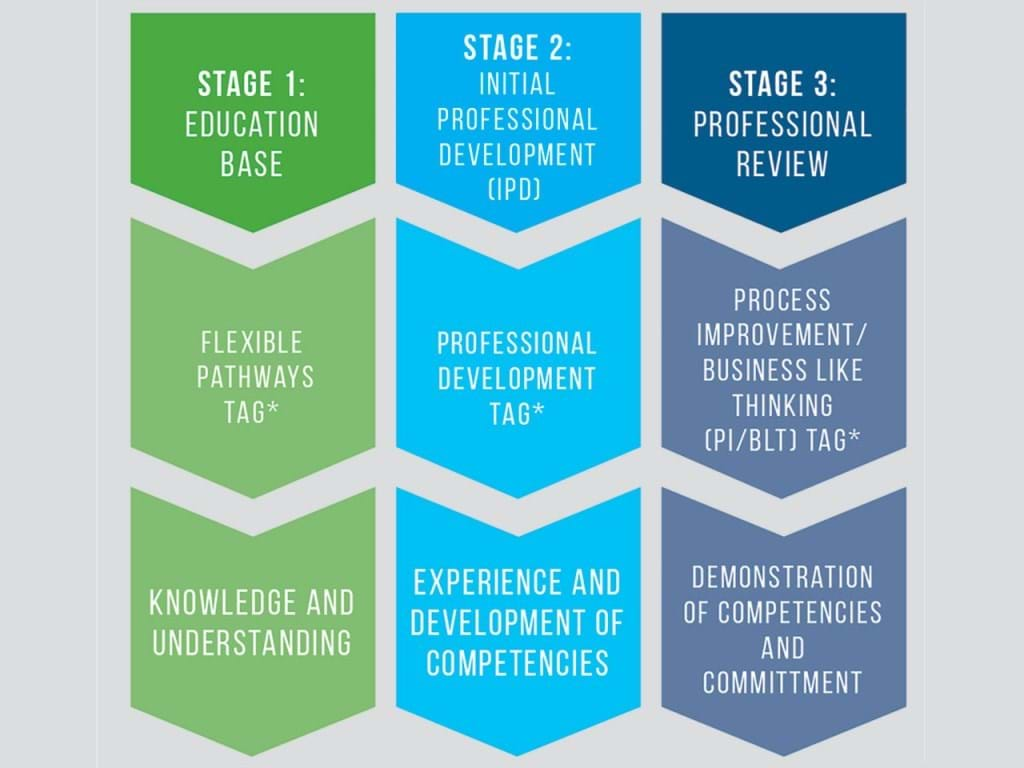GUEST BLOG: SMART thinking

3rd March 2020
Programme SMART (Sustainable Membership Achieved via Robust Transactions) is a group of four member-led projects designed to deliver sustainable membership growth.
When it was initiated in 2017, members were consulted and webinars were held to inform the membership of its aims.
We’re now beginning to deliver some of the changes and so we wanted to provide an update on progress of the projects, and we will continue to do this via The Chemical Engineer and this blog throughout 2020.
In today's blog, IChemE Vice President (Qualifications) Ainslie Just provides more detail on Programme SMART and its progress.

Name: Ainslie Just
Job title and organisation: Retired, but also currently providing consulting services as a Principal Advisor at Phronis Consulting
IChemE roles: Vice President (Qualifications); Global Registrar, Professional Formation Forum (PFF); Australian Board member; and Queensland Members Group committee member
Bio: I graduated from the University of Adelaide with a BE Hons and BSc in chemical engineering. I worked in the chemical and plastics manufacturing sector for almost 20 years before moving into consulting, where my focus has been mainly in environmental and risk management.
Growing the membership
Sustainable membership growth is critical to:
- provide more for our members;
- benefit society;
- remain relevant to the profession;
- strengthen the global network of chemical engineers; and
- increase the relevance of the Institution and the profession to decision makers.
Programme SMART is structured around the three stages of a chartered membership application, as defined by the Engineering Council’s Registration Code of Practice. By the end of 2020, all three stages will be built into a new system that will replace our existing ‘MARS’ (Membership Application Review System) process.
The Qualifications Committee acts as steering committee for Programme SMART. As Vice President (Qualifications), I chair both of these, but I’m actively supported by the chairs of both the Professional Formation Forum, Helen Fennell, and of the Education and Accreditation Forum, Rob Best.
Technical advisory groups (TAGs) were established at the beginning of the project, and are member led. They have been specifically formed to provide the required member expertise.
I’ll now share an update on each of these three stages.

*Member-led technical advisory group
Stage 1: Education base
This stage includes the development of a new Individual Case Procedure (ICP), which has been progressing well.
ICP is the assessment of Stage 1, the educational base for membership for those who do not have accredited degrees, that fully meet the entrance requirements. In order to test the new procedure, we have undertaken two pilot projects and are now in the midst of a third (42 candidates have been involved in the pilot studies).
ICP will be a more welcoming and flexible replacement to the current Technical Report route and will ultimately provide a more transparent and accessible route for those without an accredited chemical engineering degree to provide IChemE with evidence that they meet the educational requirements for both Incorporated (IEng) and Chartered (CEng) status.
We also welcome Fenella Nordquist as the first ICP Panel Chair. This panel of volunteers will be responsible for undertaking the assessment of ICP applications.
A soft launch (invitation only) will be planned to follow the third pilot (May 2020) before going fully live with ICP on IChemE’s website later in the year.
Stage 2: Initial Professional Development (IPD)
Currently, IPD assessment is part of the Competence and Commitment (C&C) Report assessment in the Professional Review stage. IPD can be gained either through an employer’s IChemE Accredited Company Training Scheme (ACTS) or independently by candidates.
We are looking to introduce an Initial Professional Development (IPD) assessment stage in the application process to provide better evidence of compliance with the Engineering Council requirements as well as improve feedback and support for those who have not been through an ACTS.
It will also mean that candidates will benefit from a pre-check of their professional experience before they move to Stage 3 – this should give them confidence before they begin to work on their C&C Report.
The process is under development and will accommodate both ACTS and non-ACTS candidates.
Stage 3: Professional review
Over the past few months, we have conducted pilots with candidates from ACTS schemes to test a revised process for processing Chartered Membership applications within three months from submission of application to receipt of result. This cuts the average time by around half. In 2016, for candidates with accredited Master’s-level degrees, the process took on average 177 days.
53 candidates were involved in the process, which was supported by a small team of membership volunteers, who carried out both the assessment of Competence and Commitment reports and the interview.
Stakeholder feedback gathered following the pilots was largely very positive and is being considered as we work to create a new Stage 3 process for all candidates (not only those from ACTS schemes).
We will continue to keep you updated on progress as the new three-stage process is developed, and formal communications about the launch will be issued closer to the time.
This article also appeared in the latest issue of The Chemical Engineer.